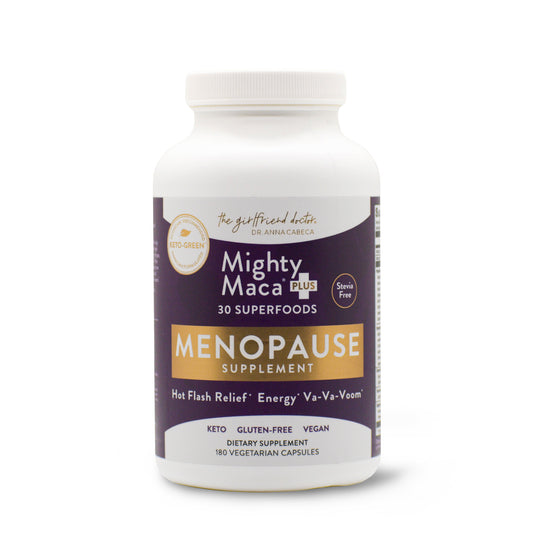Understanding the Hidden Hormonal Forces Behind Midlife Weight Changes
For so many women in their 40s and 50s, it can feel like their bodies suddenly start breaking the rules. The same diet and exercise routine that worked for years no longer moves the needle. Weight creeps up—especially around the middle. But it’s not just aging or willpower at play. The real culprit? Hormonal shifts during perimenopause that change your metabolism from the inside out.
Hormonal weight gain is not your fault—and it’s not permanent. Understanding the science behind hormonal metabolism changes during perimenopause can empower you to regain control, confidence, and comfort in your body.

1. Estrogen Decline and Metabolic Rate Changes
Estrogen isn’t just a reproductive hormone—it plays a vital role in how your body burns energy. According to a comprehensive review published in the Climacteric journal, estrogen decline during perimenopause affects metabolic rate by 5-10%, while simultaneously altering fat distribution patterns¹. This means your body burns fewer calories even at rest.
What this means for you:
You may gain weight even without changing your habits.
Fat distribution shifts toward the abdomen, increasing visceral fat.
2. Cortisol and Abdominal Fat Accumulation
Stress becomes more impactful during perimenopause. Elevated cortisol levels—especially when chronically high—can cause your body to store fat in the belly. It also disrupts appetite and sleep, further compounding weight struggles.
Girlfriend Tip: Mighty Maca® Plus contains adaptogenic herbs like maca, ashwagandha, and turmeric that support your body's natural stress response. It’s a customer favorite for steady energy and fewer sugar crashes.
3. Insulin Sensitivity and Glucose Metabolism
As estrogen drops, so does your body’s ability to process carbohydrates efficiently. This hormonal shift can lead to:
Increased insulin resistance
Higher blood sugar
Greater fat storage (especially in the abdomen)
Research published in Maturitas demonstrates that targeted interventions during perimenopause can significantly improve insulin sensitivity and support healthier weight management².
4. Sleep Disruption and Hormonal Imbalance
Nearly 60% of women in perimenopause report poor sleep. Lack of restorative sleep:
Suppresses growth hormone (needed for muscle maintenance)
Increases hunger hormones like ghrelin
Elevates cortisol at night
How to sleep smarter:
Wind down with a screen-free routine
Consider natural support like magnesium
Maintain consistent sleep and wake times


1. Try Gentle Intermittent Fasting
Start with a 12-hour eating window (e.g., 8 AM to 8 PM) to improve insulin sensitivity without adding stress

2. Strength Train Twice a Week
Resistance training helps preserve muscle, which boosts metabolism. Focus on compound movements and progressive overload.

3. Prioritize Sleep Quality
A cool, dark room and consistent sleep schedule can work wonders for hormone balance.

4. Use Natural Hormone Support
"Balance" progesterone cream supports skin health and may ease symptoms of estrogen dominance. Many women feel lighter, more emotionally stable, and less bloated.

Don’t Overlook Vaginal Health
Hormonal shifts don’t just affect your weight—they impact your confidence and comfort too. Julva® is a DHEA-based cosmetic cream that supports vulvar skin comfort, moisture, and elasticity.

When to Seek Additional Support
If you experience sudden weight gain, persistent fatigue, or severe sleep disruption, talk to your healthcare provider.
Redefining Success During Perimenopause
It’s not just about the number on the scale. True success looks like:
Feeling energized throughout the day
Sleeping soundly and waking refreshed
Having more stable moods
Feeling confident in your skin
Final Takeaway: You’re Not Broken. You’re Becoming.
Perimenopause is a natural phase—not a medical failure. With the right tools, knowledge, and support, you can feel vibrant, strong, and reconnected to your body.
Girlfriend, you’ve got this.
Let’s walk this path together—with science, sisterhood, and solutions that support your body.
Ready to support your hormonal metabolism naturally?

Q: How much weight gain is normal during perimenopause?
A: Research suggests that women may gain 1-2 pounds per year during perimenopause, with significant individual variation. However, the distribution of weight gain (particularly increased abdominal fat) is often more concerning than the total amount.
Q: Can I still lose weight during perimenopause?
A: Absolutely. While metabolic changes make weight management more challenging, targeted approaches that address hormonal factors can be very effective. The key is working with your body's changing physiology rather than against it.
Q: How long do these metabolic changes last?
A: Metabolic changes typically begin during perimenopause (which can last 4-10 years) and may continue for several years after menopause. However, many women find that implementing supportive strategies helps them adapt and maintain a healthy weight throughout the transition.
Q: Should I avoid all carbohydrates during perimenopause?
A: No, but the type and timing of carbohydrates become more important. Focus on complex carbohydrates with fiber and consider timing them around physical activity when insulin sensitivity is naturally higher.
References:
Davis, S.R., Lambrinoudaki, I., Lumsden, M., et al. (2023). Metabolic changes during the menopausal transition: a review. Climacteric, 26(1), 12-20.
Kapoor, E., Collazo-Clavell, M.L., Faubion, S.S. (2024). Weight gain in menopause and its management strategies. Maturitas, 145, 58-65.
Disclaimer:
This information is for educational purposes only and is not a substitute for medical advice. These products are not intended to diagnose, treat, cure, or prevent any disease. Please consult your healthcare provider for personalized guidance.









